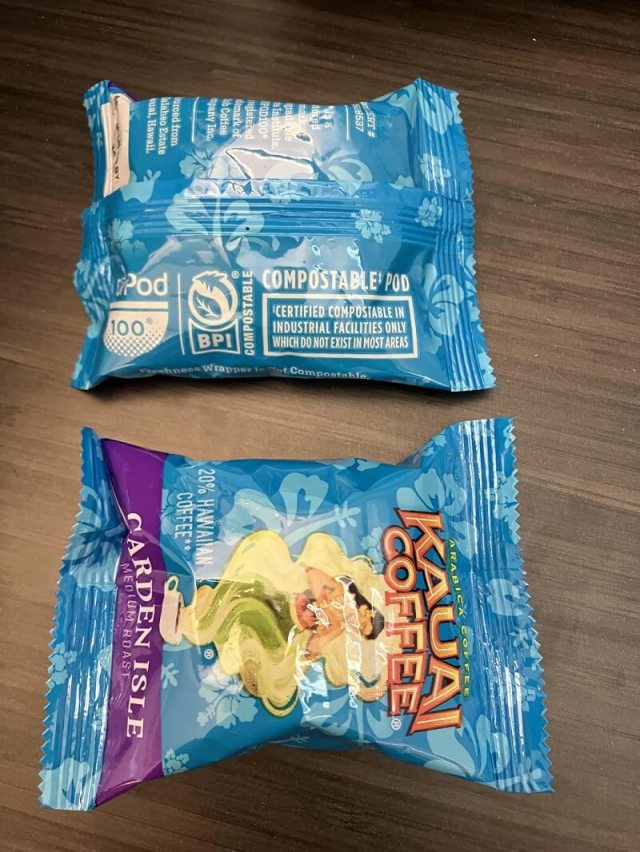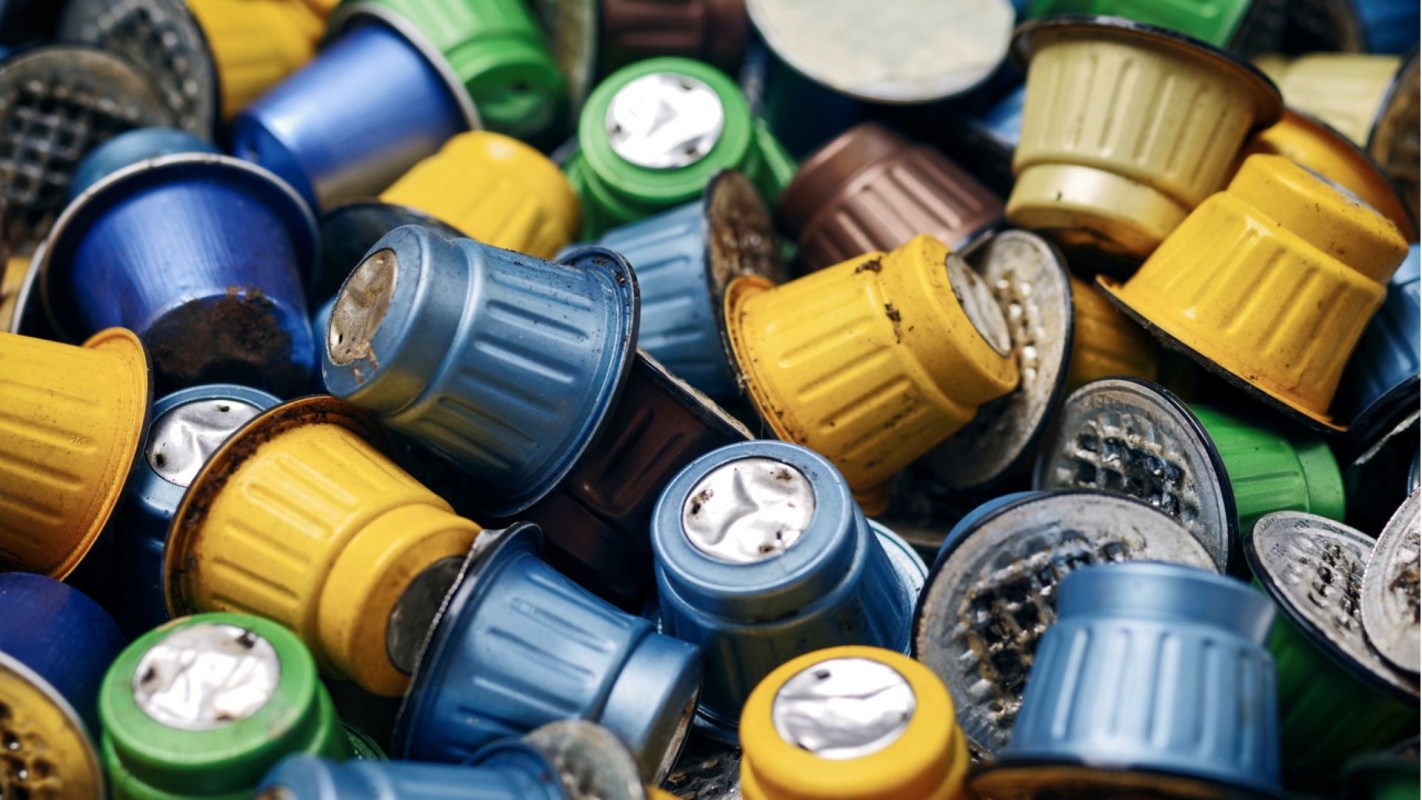Most of us likely try to follow the adage we've heard many times and not judge a book by its cover. However, when it comes to product packaging like that called out in a Reddit post to the r/mildlyinfuriating subreddit, it isn't easy to do.
What's happening?
In the post, the Redditor pointed out a problem with the packaging of their Kauai Coffee pods.

"This 'compostable' coffee pod comes individually wrapped in plastic," they wrote above the photo of two pods, one showing the front of the package and the other the back.
The back of the packaging states that the pod inside is compostable, but directly below this, it says, "Certified compostable in industrial facilities only, which do not exist in most areas."
"Moral flex marketing," commented one user, while another Redditor even pointed out that the packaging admits the Hawaiian coffee brand only promises 20% Hawaiian coffee.
Why is the packaging problematic?
As the OP pointed out, while the pod may be commercially compostable, the disclaimer states that most consumers won't have access to these facilities, meaning the pod will end up in the trash anyway.
Further, regardless of this, the individual wrapping certainly does not appear to be compostable or seem to make any claim to be anything other than non-biodegradable plastic.
About 40 million tons of plastic waste are tossed out annually in the United States, and only about 5% of this is recycled. The rest ends up as litter or in landfills, where it may take hundreds of years to break down, creating microplastics and pumping out planet-warming pollution along the way.
Plastic waste in all its forms harms ecosystems and the people and wildlife that live in them.
Another concern, as the comment below the post pointed out, is that it's a classic example of greenwashing — when a company makes outright false or misleading claims about a product's or practice's environmental benefits. Greenwashing is extremely harmful and can be difficult to spot.
On at least one of Kauai's marketing materials, the company says the design "uses less plastic" and encourages you to "enjoy your single-serve coffee with less guilt." Apparently the meaning there is you may, and probably should, still have some guilt, but now there will be a bit less of it.
And while less plastic is indeed better than the status quo, marketing the pods as compostable generally sends a misleading message about how much better for the environment they really are.
What is the company doing about it?
Kauai Coffee did not respond to The Cool Down's email request for comment on the packaging and the way in which the product is marketed.
Their website does have a sustainability section, but it focuses on sustainability in their coffee growing practices and not on what happens once the plants become a consumer product in the form of a coffee pod.
What can we do to help?
As astutely, if not sarcastically, pointed out by another commenter who said, "If only there was a way to buy and brew coffee that didn't involve individually packaged plastic pods," there are many actions we can take as individuals to avoid this kind of product and packaging.
We can avoid single-use coffee and other plastic products in the first place by opting instead for low-impact options.
We can also educate ourselves on greenwashing and ensure that we support circular brands and those that avoid plastic packaging altogether.
Holding corporations accountable for their actions and putting pressure on the problem will likely eventually lead to change.
Join our free newsletter for cool news and actionable info that makes it easy to help yourself while helping the planet.









